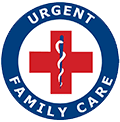Skin Allergies
A skin allergy is a skin irritation, such as a rash or itchy bumps, triggered by your immune system’s reaction to a particular substance, called an allergen.
Contact dermatitis is an allergic reaction to something that comes in contact with your skin. These allergic contact dermatitis reactions can occur 24 to 48 hours after contact, and may take 14 to 28 days to go away, even with treatment.
Eczema, a chronic skin condition that usually begins in early childhood, is a scaly, itchy rash that often affects the face, elbows and knees. Eczema is often associated with food allergies, hay fever, and asthma. It can also be triggered by a skin infection, or by an allergy to pet dander, detergents, or fibers.
Hives are red, itchy, raised areas of the skin that appear anywhere on your body. Angioedema dermatitis, a swelling of the deeper layers of the skin, often occurs with hives.
Causes of Skin Allergies
Skin allergies are commonly caused by:
- Nickel, a metal found in jewelry, belt buckles, and snaps on jeans
- Makeup, lotions, soaps, and shampoos
- Sunscreens and insect repellents
- Medications applied on your skin, such as antibiotics or anti-itch creams
- Fragrances, dyes, and perfumes
- Cleaning products and laundry detergents
- Plants, including poison ivy, poison oak, and poison sumac
- Latex, used in plastic gloves, elastic in clothing, condoms, and balloons
Some chemicals cause a reaction only when your skin is exposed to the sun.
You can also have an allergic reaction on your eyelids, head, and neck to something in the air that settles on your skin, such as plant pollen, chemical sprays and powders, fibers, cigarette smoke, or smoke from burning leaves.
A skin allergy might take years to develop, with numerous exposures to the allergen before your body begins to react. Once you develop the allergy, your skin might react within minutes any time you come into contact with the allergen.
Skin allergies are not contagious.
Treatment for Skin Allergies
Treatment for a skin allergy depends on the severity of the symptoms. In severe cases, your doctor may prescribe a topical corticosteroid creams or oral prednisone.
Over-the-counter products and home remedies can help relieve the itching and stop the swelling:
- Antibiotic creams
- Hydrocortisone cream
- Calamine lotion
- Antihistamines
- Cold compresses
- Oatmeal baths
To prevent infection, avoid scratching the rash.
The best treatment for a skin allergy is prevention. Try to discover what causes your rash and avoid it. You may need to wear gloves when using cleaning products or detergents. Your doctor can help you identify the causes of your allergies so that you can avoid them. We at Urgent Family Care in Knoxville are here to help.
Skin Infections
Skin infections are caused by bacteria that get into openings in your skin, or spread from existing wound infections on the body.
Cellulitis forms deep in the skin and causes redness, swelling, and tenderness. Symptoms can include bruising, fever and chills, and overall weakness. People who leave their hands exposed while working with bacteria-contaminated meat and poultry are at particular risk for cellulitis.
Folliculitis appears as small, white lumps around hair follicles that eventually fill with pus and break open. Folliculitis often affects people who use poorly maintained pools or hot tubs, wear tight clothing, or overuse antibiotics or steroid creams.
Impetigo begins as red spots, often around the nose and mouth, that become larger, itchy blisters. It is common in young children, but adults can get it too. The sores may form a yellow-brown crust. Impetigo should be treated by a doctor because it is contagious.
Boils and carbuncles are infections of the hair follicles that begin as red lumps and grow larger and fill with pus before breaking open and draining.
When to See a Doctor for a Skin Condition
See a doctor if:
- Symptoms of your skin allergy or skin infection cause notable discomfort or unpleasantness.
- Your skin allergy reappears regularly. Your skin problem does not clear up by itself and seems to be chronic.
- You have symptoms of infection, such as fever, numbness, a large or spreading area of affected skin, pain, swelling, or a discharge.
- You think you or your child has impetigo.
- You think you have cellulitis.
- A skin infection is near your ears or eyes.
- You have HIV, diabetes, or a weak immune system.
- You have boils on your face or spine, or boils that occur frequently and do not seem to heal.
Treatment for skin allergies and skin infections is available in Knoxville at Urgent Family Care.
